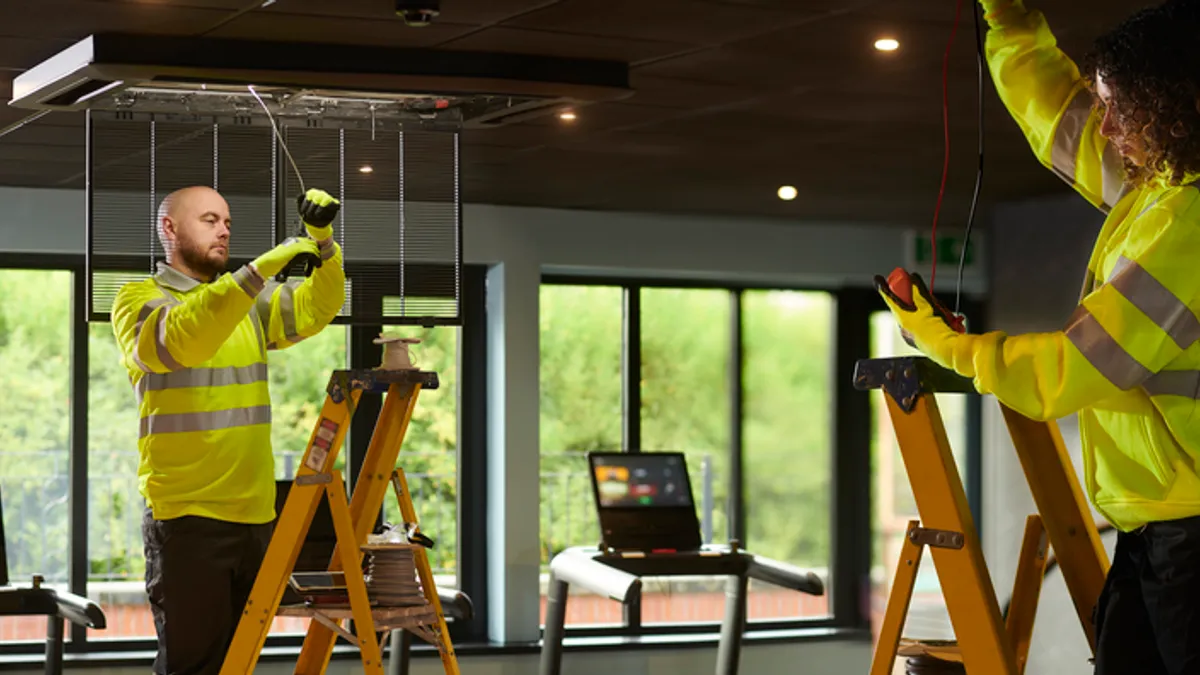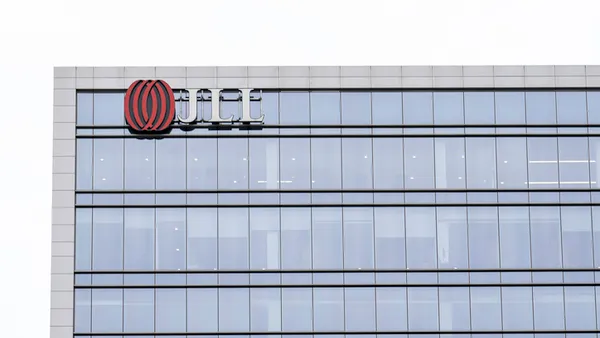Dive Brief:
- JLL is collaborating with Microsoft to pilot and test a new, AI-powered connected workplace app that aims to support hybrid workplace models and evolving workforce needs.
- The application, Microsoft Places, is designed to help employees and teams coordinate in-person office time for better collaboration and connection, providing employers with occupancy and space utilization trends that facilities management teams can use to improve workplace experience, per a May 13 news release. JLL said it has been piloting Places, as part of a private preview, at its global headquarters in Chicago since March.
- “A data-driven approach to facilities management combined with human insight delivers the best outcomes for occupiers and workers,” Jim Whittaker, senior group product manager at JLL Work Dynamics, said in the release. “Technology is the beating heart of a dynamic workplace,” he said, noting that insights gained through technology can be turned into actions that can keep employees “engaged, comfortable and inspired.”
Dive Insight:
A majority of organizations have settled on hybrid work models, meeting somewhere in the middle between employers’ desire for on-site attendance and employees’ preference for flexibility, according to Bobby Magnano, president of financial services at JLL.
Many companies have settled on Tuesdays and Thursdays as the days that employees are expected to come into the workplace, Magnano said in an interview. However, only 15% of organizations surveyed in JLL’s 2024 Global Occupancy Planning and Benchmarking Report reported having specifically defined days for individuals to attend the office. “While undefined days provide greater flexibility for workers and teams to adapt their workweek, it creates long-term challenges for planning and management of office space,” JLL said in the release.
The report, which surveyed over 80 global organizations who manage extensive office portfolios across different countries and regions, also found that 69% of employers currently use seat sharing, while 90% said they intend to implement or increase seat sharing in the future. JLL noted that seat sharing, as an occupancy measure, requires “modern, more connected and intelligent technology.”
To accommodate this, Microsoft Places aims to streamline booking processes for meeting rooms and shared seating, enabling employees to see where team members booked desks, according to the release.
“The main way that a lot of folks are thinking about technology is removing the barriers and impediments that would make it difficult for someone to go about their day in-office,” Magnano told Facilities Dive. “Reservation systems … have now really evolved and have become pretty sophisticated very, very quickly. Microsoft is coming up with stuff that prompts you that [a coworker] is going to be in the state and you might want to come in, because we noticed your calendars overlap,” he said.
Places is capable of automatically releasing unused rooms or desks that have been booked and integrates with Microsoft Copilot, providing information to IT, real estate and facilities teams to inform space management and adaptation, Microsoft said in a May 13 blog post.
The application also integrates with Microsoft Teams, “to incorporate team members from other locations, ensuring maximum involvement across geographies,” JLL said in the release.
“Interestingly though, in our experience, people still don’t love the video setup in-office. And again, most of us tend to be on [video meetings] a good chunk of the day,” Magnano said. “How to do that, while you’re creating more open community space is really a challenge that a lot of folks are working through on the technology front.”
In addition to helping employees navigate hybrid work models, Microsoft Places enables facilities management teams to improve workplace experiences and create “adaptable, safe, healthy and resilient facilities,” according to JLL. For instance, facilities management teams can adjust lighting and temperature controls, and plan more efficient cleaning schedules based on occupancy trends, JLL said.














